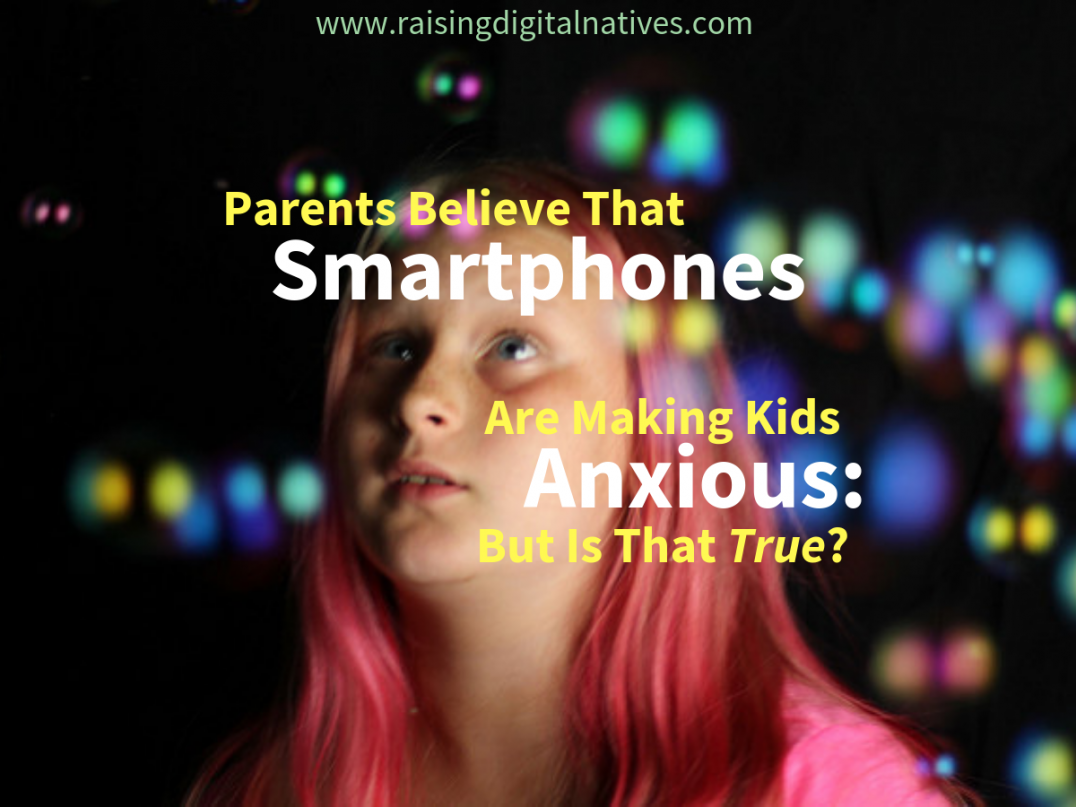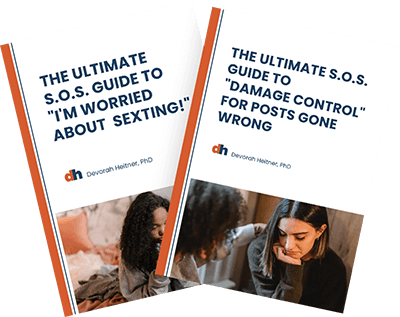 In my talks and work with parents, I frequently hear, “The phone is making kids anxious – I see this in my own child.”
In my talks and work with parents, I frequently hear, “The phone is making kids anxious – I see this in my own child.”
Much of the hype around kids, tech, and anxiety needs further investigation. While one study found a small correlation between extensive tech time and increased anxiety and depression, there’s no proof that tech is the cause. We can’t point our finger at smartphones. There’s significant evidence to show that this generation is benefiting from technology, and even using technology to make the world better.
The question I get next from parents and educators is often, “If it isn’t smartphones then WHY are kids so anxious?”
So if it’s not tech making kids feel uneasy, what is it?
We need to ask a different question.
What if we discover that anxiety isn’t increasing at all? Psychiatrist, Dr. Richard A. Friedman recently published an article suggesting that the increase in anxiety itself might not be accurate.
This flies in the face of a belief that almost everyone in my world of parenting experts and academics has been taking as a given, so it’s eye-opening to say the least.
For me, this was a mindblowing idea, and an excellent reminder for all of us to keep questioning and digging deeper into everything we read and hear on the news.
Friedman points out that young adults seem to have a lower tolerance for even mild anxiety such as a few restless nights during a stressful period at school. They’re “worried about being worried,” he says. And this is interesting. This gives me a new way to understand why more college freshman are saying they’re “overwhelmed.” But are we telling them that they’re overwhelmed? By posing this question, I’m not at all wishing to minimize the difficulties that come with severe anxiety. Certainly for parents who are dealing with serious anxiety-related issues like school refusal, seeking clinical support will be crucial. But there are many reasons a college student might say they’re feeling overwhelmed, and a culture of those around you saying that they are and that you probably are too may explain it.
“Overparenting” may be driving up anxiety as well.
How can we teach our kids that some stress and anxiety is a natural part of life? Friedman is concerned that we might be “pathologizing everyday levels of distress.”
It can be good for our kids to see us go through stressful experiences and come out okay. One of my friends just had to do her medical board exams. She’s a great doctor but it still involved a lot of prep – and yes, some stress. She let her kids see that it was a stressful and time-consuming process, but she also celebrated with them that she was finished and that she appreciated how supportive and kind they had been to her during her preparation. What a great way to help them see that some stress is part of life, but that they can get through it.
Projecting my own anxiety onto my child?
I’m not the mellowest person I know, and I feel added guilt when I worry I’m passing any of my own anxiety down to my fourth grader. At one point during the summer, he was having a hard time at camp, but my questions and concern only seemed to amplify his worry. I consulted with a therapist who advised me not to ask any questions about camp for a week. She said, “If he’s having a hard time and wants to talk about it, let him. But don’t ask.”
It was hard, but I picked him up from camp every day for a whole week and kept my questions to myself. What I heard at first was – nothing. Over the course of the week, I started to hear a little bit about the fun parts of camp. While camp wasn’t perfect, my worried questions and anxiety after a rocky start weren’t helping the situation. It’s always helpful for both parents and kids when we can model techniques to help them manage stress in healthy ways.
Are we as parents simply adding to the pressure?
I share this recent example as an important lesson for all of us. I get it, as parents we simply want what’s best for our kids. We want to see them thrive. We just want them to be happy. And when they’re not, we need to fight the urge to jump in and attempt to “fix” the problem or manipulate the situation. What I was doing with my son’s camp experience was projecting my anxiety onto him. And like the great mirrors they are, he reflected my anxiety-filled questions back at me with his responses.
When we’re working with young adults and the devices in their pocket, could we be expressing our own anxiety about what they can do with phones? Could it be that our kids aren’t really too stressed at all, just experiencing the regular amount of stress that comes with growing up? Pause for a second and consider what may be causing strain in your life. Now, consider how might you be projecting that stress onto your child and then they toss it back to you – a natural response.
We can’t outsource resilience
There are countless ways tech can improve our lives. It’s what lets me share this article and this research with you. However, teaching our kids resilience isn’t something we can outsource to an app.
Sure, there are some cool apps out there to help support your child in developing good mindfulness habits. However, nothing is as helpful as simply modeling how to deal with anxiety in a realistic and resilient way, and to seek help if you need some outside perspective or if the anxiety and stress in your child’s life is keeping them from the activities of daily life.
If you enjoyed this article you might like these too:
- Homework Solutions in the Age of Distraction
- Raising A Digital Kid? Empower Them to Mindfully Add Contacts
- Forget New Year’s Resolutions – Set Intentional Tech Habits
—
Photo credit: “IMG_7219” by Ryan and Sarah Deeds is licensed under CC BY-SA 2.0. Changed from original: Cropped and added text overlays.
Hit the reset button on your family’s digital life!
Sign up below for 7 days of actionable strategies, right in your inbox.

